Which Age of Sail Game Will Hoist Your Colors?
Ahoy, fellow captains and gaming enthusiasts! At Command Post Games, we’re passionate about bringing history to life through immersive, quick-to-learn simulations. Our own Rough Waters & Deep Seas has been sailing the high seas of tabletop gaming since its launch, offering tense cat-and-mouse chases in the Golden Age of Sail. But how does it stack up against a heavyweight like Sails of Glory from Ares Games? Both are mapless miniatures games that capture the thrill of naval combat without the need for hex grids or complex boards—just a flat table and your wits.
In this review, we’ll compare and contrast these two titles based on components, gameplay, theme, and more. Whether you’re a seasoned admiral or a landlubber dipping your toes into Age of Sail gaming, this breakdown will help you decide which one deserves a spot in your fleet. Let’s set sail!
Components and Setup: Pre-Painted Polish vs. Customizable Charm
Sails of Glory shines with its production values right out of the box. The Starter Set includes four fully assembled and pre-painted ships, complete with maneuver decks, ship logs, and damage counters—everything you need for immediate play. The minis are detailed at 1/1000 scale, evoking the grandeur of Napoleonic-era vessels like frigates and ships-of-the-line. Setup is straightforward: Lay out your play area (any table works, though an optional mat is available), assign ships, and you’re ready in minutes. It’s accessible for beginners, with no painting required, making it feel like a premium product.

In contrast, Rough Waters & Deep Seas emphasizes portability and customization. Our base game comes with two schooners and two sloops—3D-printed, high res minis that look striking in their monochrome black finish, even unpainted. You can paint them for that personal touch, but they’re designed to play great as-is, with built-in navigation bars for easy point-of-sail reference. Components include hidden ship cards for outfits (guns, crew, cargo), damage decks, and a simple movement template—no bulky logs or multiple decks per ship. Setup is even quicker: No assembly needed, just deal the cards and position your ships on the table. It’s lighter on components, making it ideal for travel or pub-style sessions.
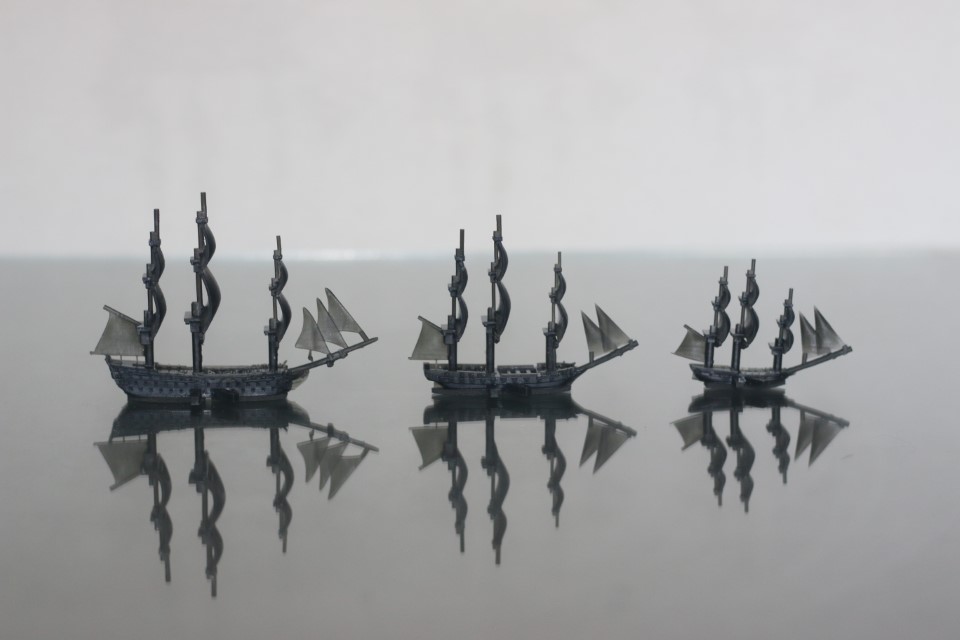
Key Difference: Sails of Glory offers more “wow” factor with pre-painted variety, while Rough Waters & Deep Seas prioritizes compact, hobby-friendly minis that encourage creativity without mandating it.
Gameplay and Mechanics: Structured Maneuvers vs. Bluffing and Chaos
Both games excel at simulating naval tactics without a map, using simultaneous movement to keep things dynamic and fair. In Sails of Glory, players secretly plot moves with maneuver cards, then reveal and execute them using a ruler—accounting for wind direction and sail settings. Combat involves drawing damage chits for broadsides, with advanced rules adding crew actions, boarding, and repairs. It’s dice-free in basic mode, focusing on positioning and planning, but can scale up for deeper simulations. Reviews praise its balance of simplicity and depth, though managing multiple ships per player can get fiddly.
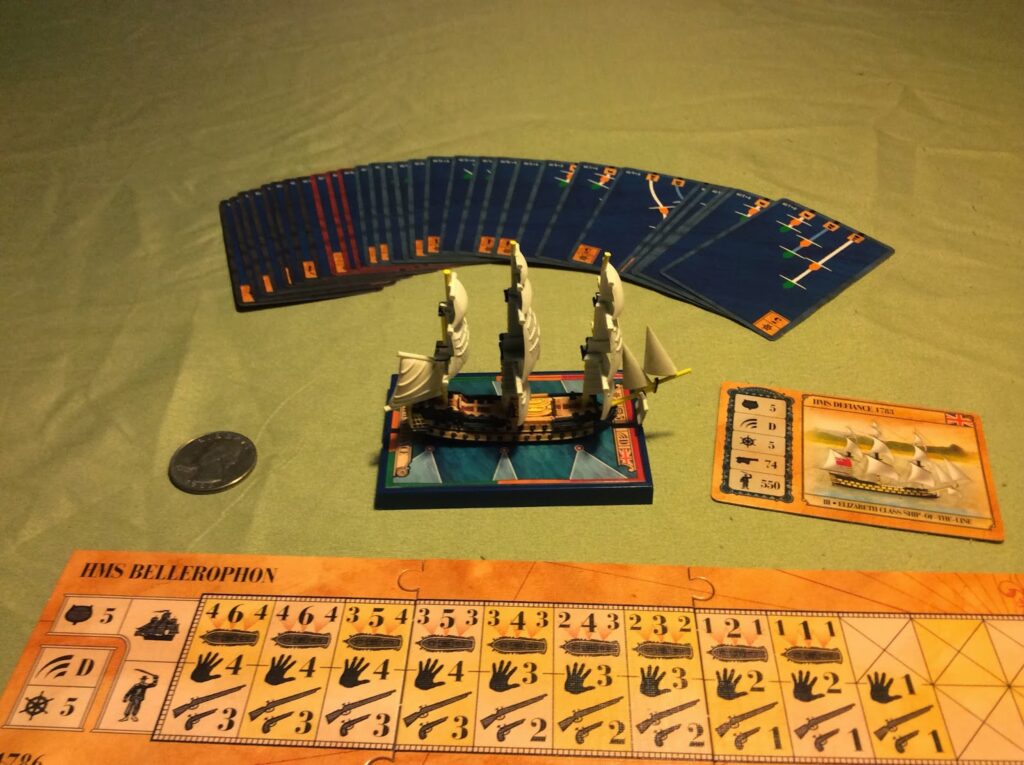
Rough Waters and Deep Seas takes a similar approach to movement—simultaneous but streamlined. One universal template and 3 rotating course blocks replace multiple decks of maneuver cards to sort through. Rough Waters and Deep Seas amps up the uncertainty with hidden elements. You outfit your ship secretly (e.g., heavy guns for combat or extra cargo for merchant runs), and opponents must guess your capabilities through observation and bluffing. Damage is narrative-driven: Draw hidden cards for hits like hull breaches or fires, then agonize over what to fix first while deciding whether to fire back or flee. Rather than resource management, Rough Waters and Deep Seas becomes more like poker as players try to outguess, bluff and negotiate to avoid boarding, adding a social layer that’s perfect for groups. With just three pages of core rules, it’s quick and easy to learn, but the hidden info creates emergent stories and tough decisions.
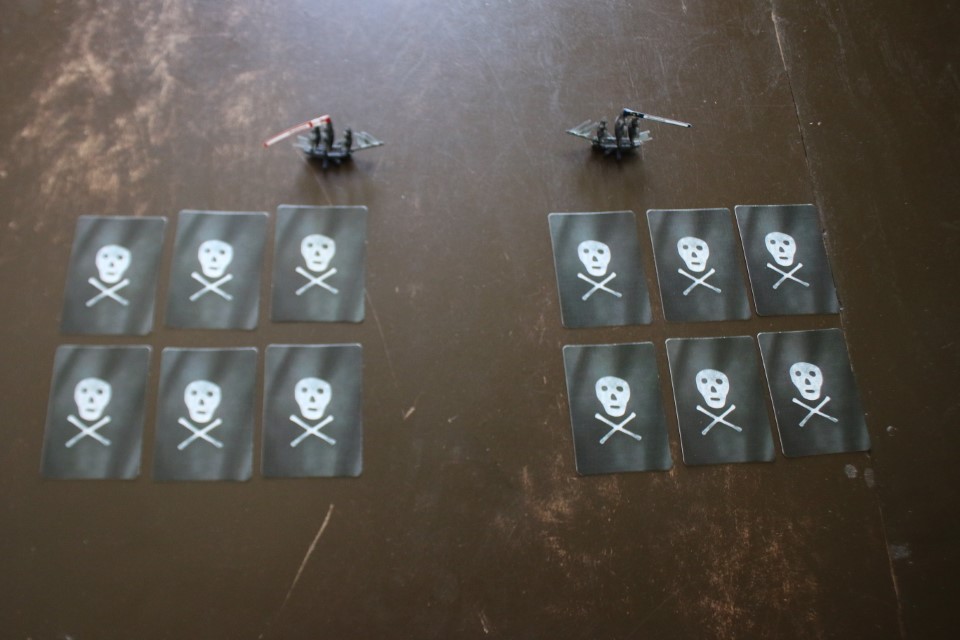
Key Difference: Sails of Glory feels more like a traditional wargame with historical accuracy, while Rough Waters and Deep Seas leans into psychological warfare and role-playing, making every encounter feel unpredictable and personal. Playtesters loved the tension in Rough Waters and Deep Seas, noting it as “brutal and fun” with less bookkeeping.
Theme and Immersion: Grand Fleet Battles vs. Pirate Skirmishes
Sails of Glory immerses you in the epic scope of the Age of Sail (1650-1815), from Napoleonic blockades to colonial skirmishes. The pre-painted ships and detailed logs evoke commanding a fleet in historical battles like Trafalgar, with lots of rules that accurately model wind, raking fire, and crew management. It’s great for history buffs, generating that “tall ship” feel reviewers rave about, but all this detail adds up to a lot more time needed to play.
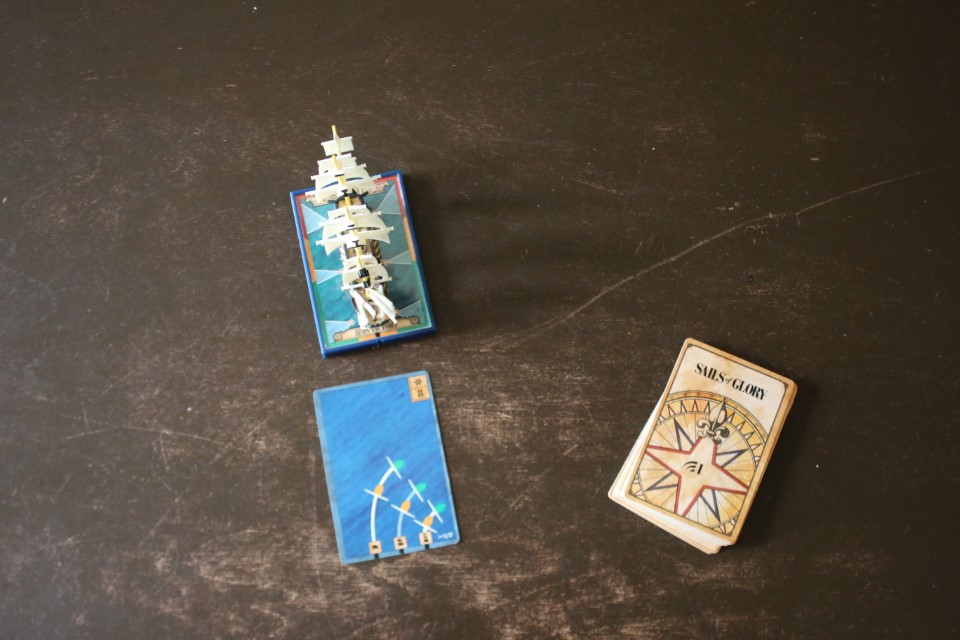
Rough Waters and Deep Seas dives into the gritty, opportunistic world of Caribbean piracy, where you’re not just fighting—you’re scheming as a Merchant dodging raiders, a Pirate hunting prizes, or a Bounty Hunter enforcing justice. The hidden mechanics mirror the era’s fog of war: Is that sloop a weak merchant or a heavily armed trap? Negotiations add flavorful role-play, like bribing a pirate with rum-soaked cargo. Playtests highlight how it creates narratives, turning games into stories of betrayal and narrow escapes.
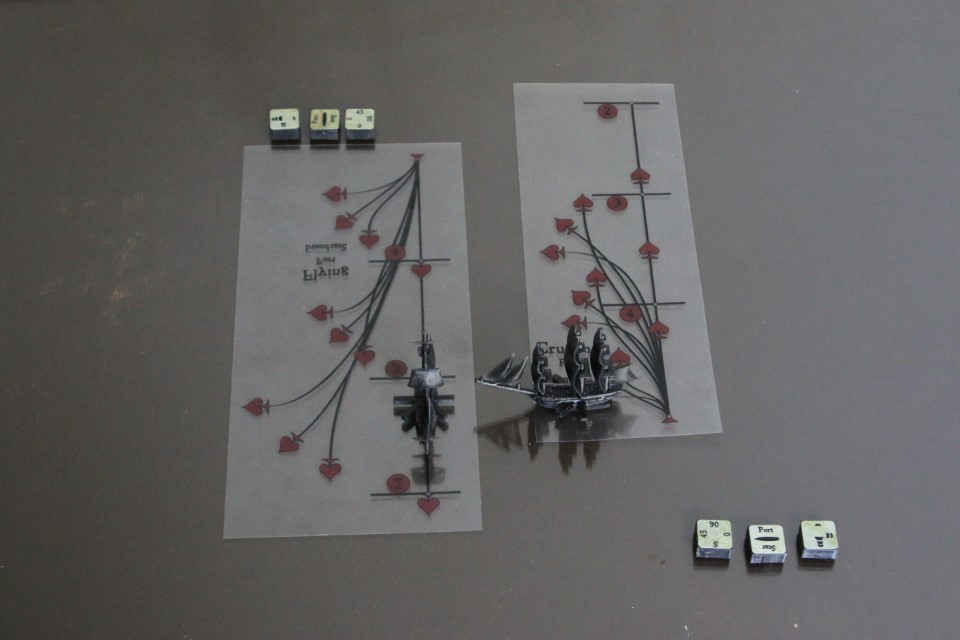
Key Difference: Sails of Glory captures large-scale naval glory, while Rough Waters and Deep Seas embodies the “between the devil and the deep” desperation of sea captains at war, with more emphasis on individual cunning over fleet strategy. Sails of Glory moves slower, taking longer to play. Rough Waters and Deep Seas is fast and furious by comparison but skips some details like picking chain shot.
Expansions and Replayability: Building Fleets vs. Adding Legends
Sails of Glory boasts extensive expansions, including Ship Packs for new vessels and Special Packs with unique abilities (e.g., famous ships like HMS Victory). This collectible aspect keeps it fresh, supporting scenarios from duels to full battles. As of 2025, the line remains active with reprints and community support.
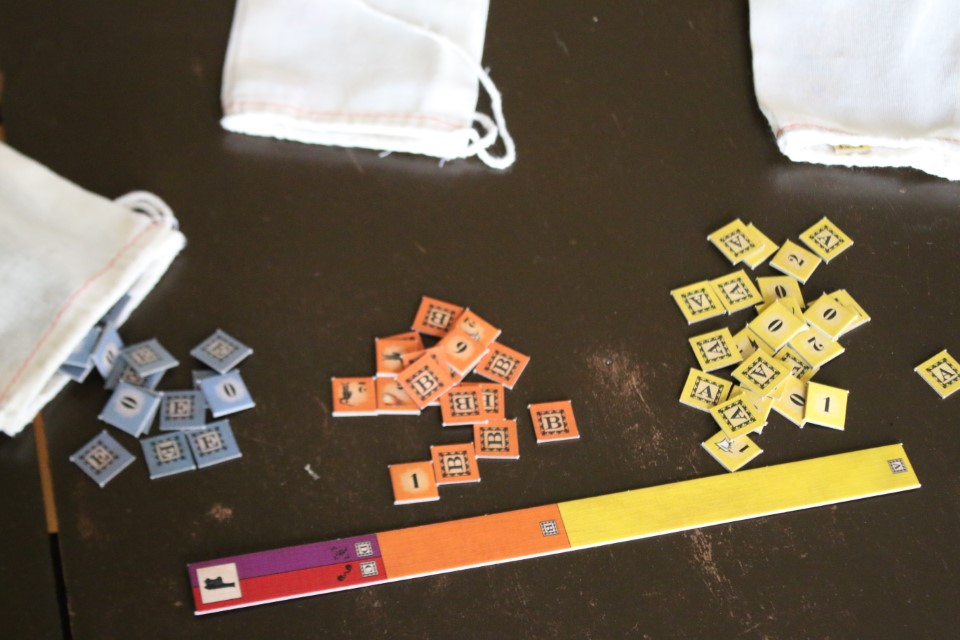
Rough Waters and Deep Seas is expandable too: Add Extra Decks for more ships and players, or the upcoming Pirate Legends expansion for mythical twists like the Kraken or Flying Dutchman. Replayability comes from variable roles and hidden setups—every game feels different based on player choices.
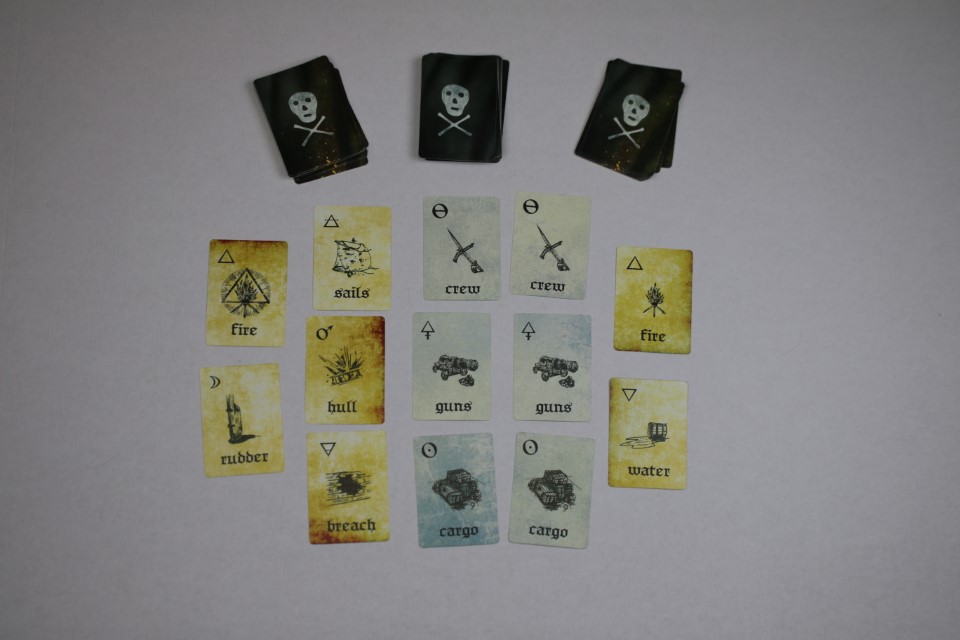
Key Difference: Sails of Glory excels in historical variety, while Rough Waters and Deep Seas focuses on modular social depth for endless intrigue.
Final Verdict: Which Game Wins the Broadside?
Both Sails of Glory and Rough Waters and Deep Seas are fantastic mapless entries in the naval genre, offering thrilling Age of Sail action without overwhelming complexity. If you crave polished, historical fleet combat with collectible minis, Sails of Glory is your port of call—it’s a proven hit with broad appeal.

But if you’re after a more intimate, bluff-heavy experience that captures the raw tension of real fog of war—with quick setup, social negotiations, and narrative flair— Rough Waters and Deep Seas edges it out for us here at Command Post Games. It’s portable, affordable at $53, and perfect for groups who love mind games over meticulous planning. Try it yourself and see why playtesters call it a game-changer!

What do you think? Have you played both? Share your thoughts in the comments below, and check out Rough Waters and Deep Seas in our store today. Fair winds and following seas!
Posted by Command Post Games Team | November 9, 2025
